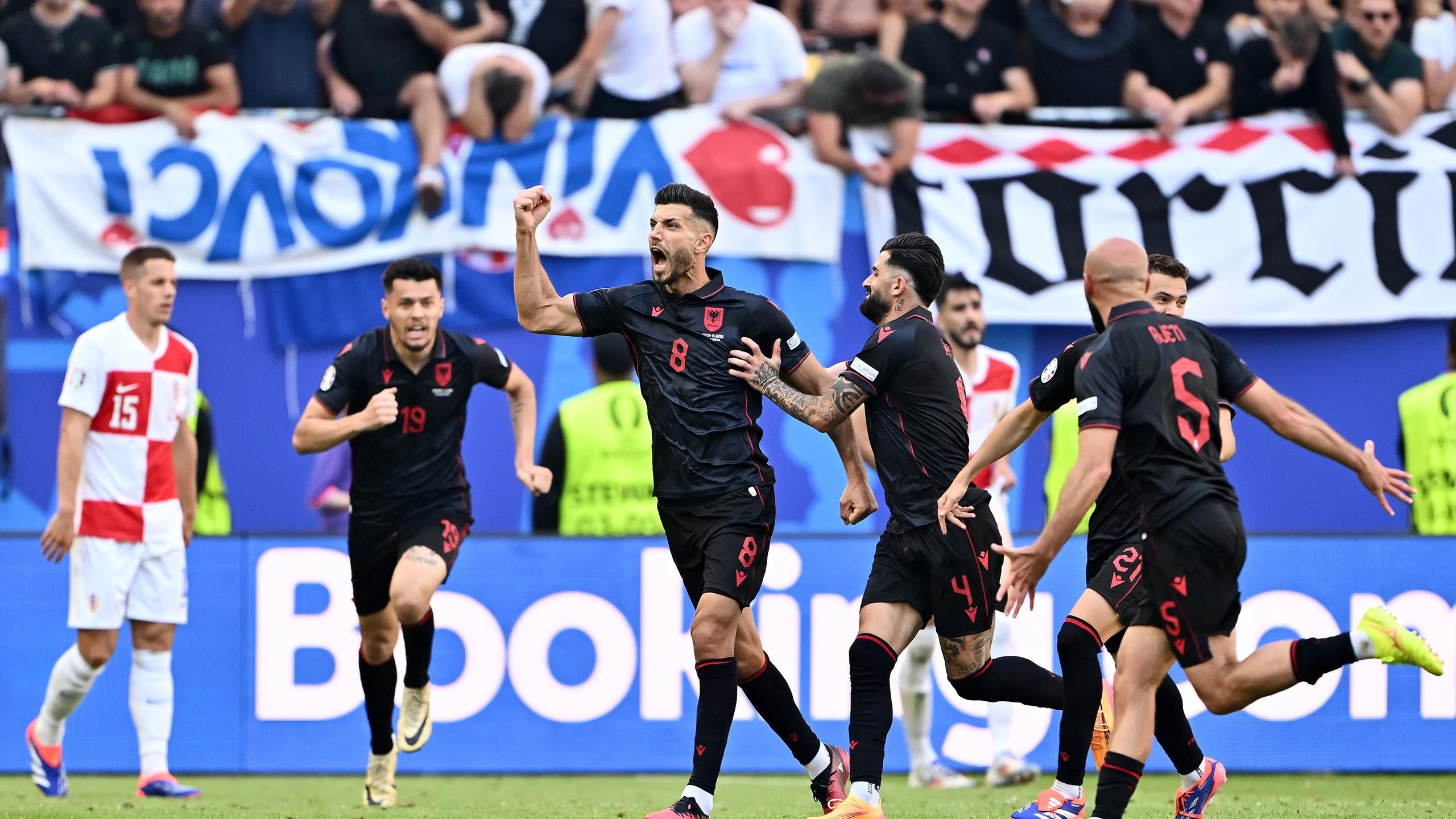
Klaus Gjasula secures a thrilling last-minute equalizer following an own-goal to salvage a draw against Croatia.
Klaus Gjasula was undoubtedly the player of the match in this thrilling encounter between Albania and Croatia. Despite scoring an own goal that gave Croatia the lead, Gjasula showed incredible resilience and determination to redeem himself in stoppage time with a well-taken equalizer.
Gjasula’s goal not only secured a valuable point for his team but also showcased his ability to contribute to the attack. His finish was the result of a flowing move down the left, highlighting his versatility and offensive prowess.
While Gjasula’s performance stood out, it is important to acknowledge the overall spirit and desire shown by the Albanian team. They started the match with a bang, scoring the fastest goal in Euros history, and continued to create opportunities throughout the game.
Despite their defeat to Italy in their opener, Albania proved that they are not to be underestimated. They have caught the imagination of the competition and will undoubtedly pose a challenge to their next opponents, Spain.
On the other hand, Croatia’s performance raised concerns about the future of the team. Once considered ageless and a force to be reckoned with, they have shown signs of vulnerability in recent matches. The humbling against Spain and the draw against Albania have exposed their weaknesses, and it will take something special for them to progress further in the tournament.
With a difficult match against Italy looming, Croatia’s chances of reaching the Last 16 are hanging by a thread. Their negative goal difference and the strong competition in their group make it a tall order for them to secure a spot as a best third-placed team.
In conclusion, Gjasula’s heroics and Albania’s spirited performance have added excitement to Group B. While Croatia’s future hangs in the balance, Albania’s dream run continues, and they will be eager to prove themselves against Spain.
